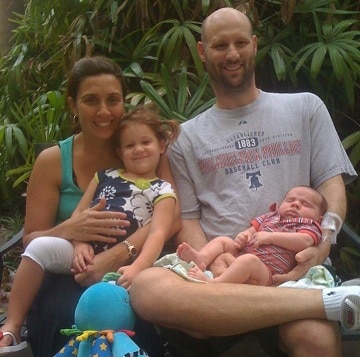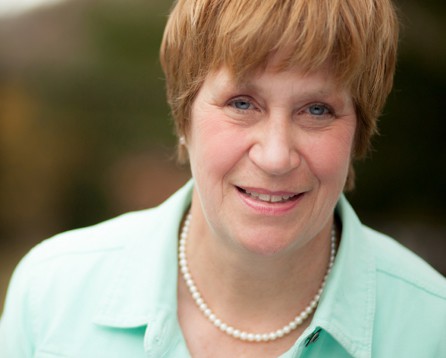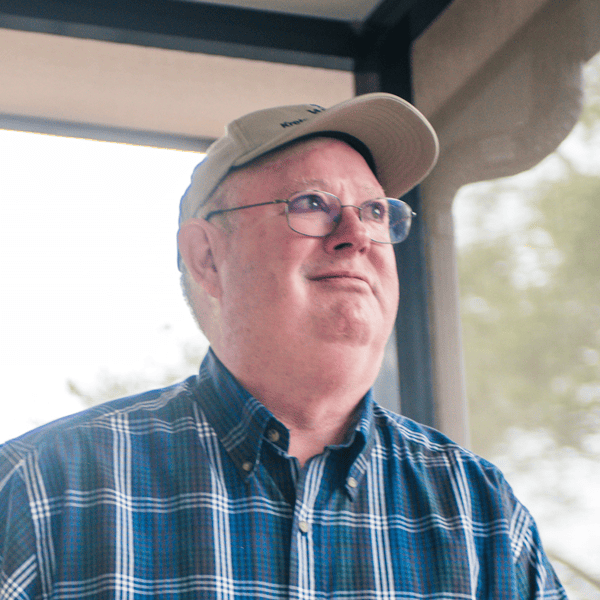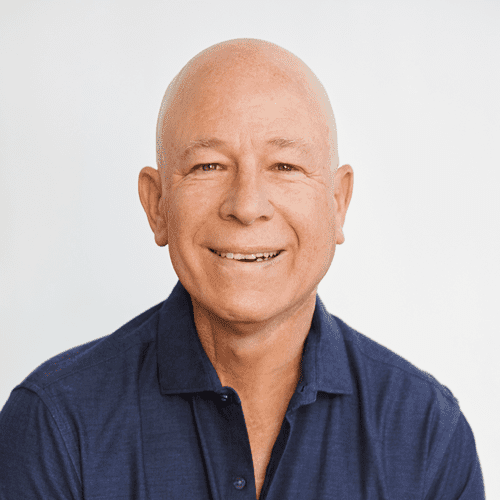T.J.’s Story
T.J. Sharpe was diagnosed with metastatic melanoma in 2012, just weeks after the birth of his second child. Not satisfied with the standard of care treatments offered to him, he and his family began exploring immunotherapy. Two clinical trials later, he is living a full life, devoting the bulk of his time to advocating for patients in the pharmaceutical and clinical research world.
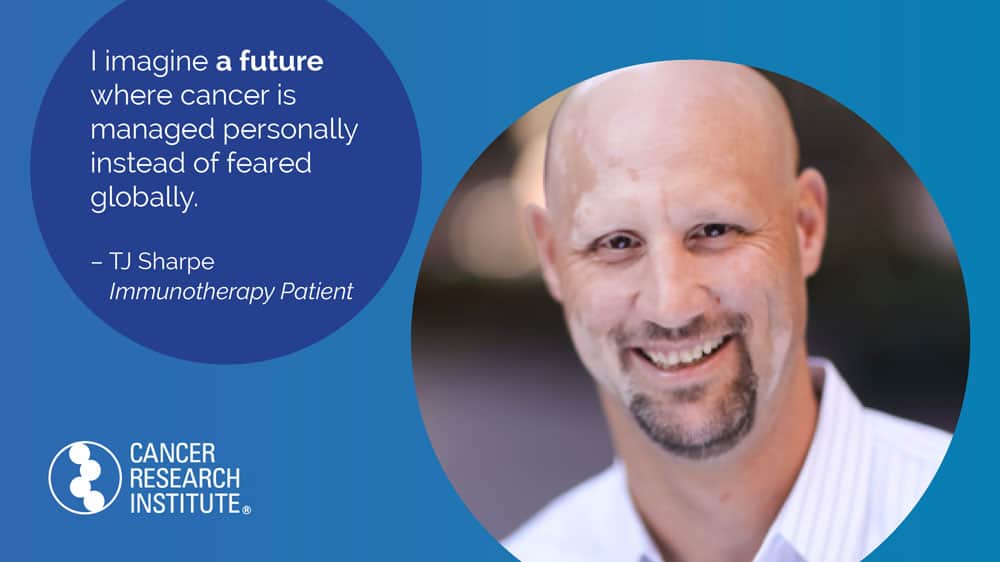
Questions and Answers
How and when did you first learn you had cancer?
I was diagnosed with metastatic melanoma in 2012. I’ve participated in two immunotherapy clinical trials, and am happy to talk about my experience.
How did you learn about immunotherapy and why did you decide to do it?
I enrolled in a clinical trial at Moffitt Cancer Center that consisted of Yervoy and TIL (tumor-infiltrating lymphocytes, a type of adoptive cell transfer), two types of immunotherapy. I was actually the first patient to ever receive this treatment—inspiring the name of my blog, Patient 1.
What was treatment like? Did you have any side effects?
I wound up being a non-responder, so I began a second clinical trial, this time at Holy Cross Hospital in Fort Lauderdale. I started pembrolizumab (Merck’s anti-PD-1 drug, since approved as Keytruda), and had a noticeable immediate regression of tumor (46% in the first 12 weeks). One theory is that the delayed and prolonged effect that both the Yervoy and the TIL have was enhanced by the subsequent PD-1 treatment.
How did immunotherapy compare to other treatments you may have received, if any?
Immunotherapy enables your body and its natural immune defense to play a pivotal role in your recovery. Because of that, I have made significant changes to focus on getting and staying healthy, since it’s my own immune system that is battling—and beating—cancer.
Are there things that surprise you about the cancer experience?
Being a public success story has given me the chance to be part of presentations on immunotherapy, clinical trial participation, and different melanoma platforms. They have been incredibly rewarding experiences, knowing I am reaching both other patients and the scientists, clinicians, and pharmaceutical professionals who work to cure them — to cure us. If one doctor learns of a new medicine, if one patient gets the right treatment, if one researcher finds inspiration to work for a new or better therapy, then all the time spent writing, speaking, and advocating is worth it. I hope that I can affect more lives and pay forward the enormous amount of support and opportunity I was given.
What would you want another patient to know about immunotherapy or about participating in a clinical trial?
I want to communicate to my fellow patients how important it is to be your own advocate, and take your health into your hands. Research the best options, and make an informed decision on what treatment is best for you.
I would also encourage all patients to look into clinical trials. It may not be the best choice for everyone, but it is important to know that cancer patients get at least the current standard of care, and have the potential to get new life saving medicines more quickly.
Above all else, stay strong. You are not in this alone.
